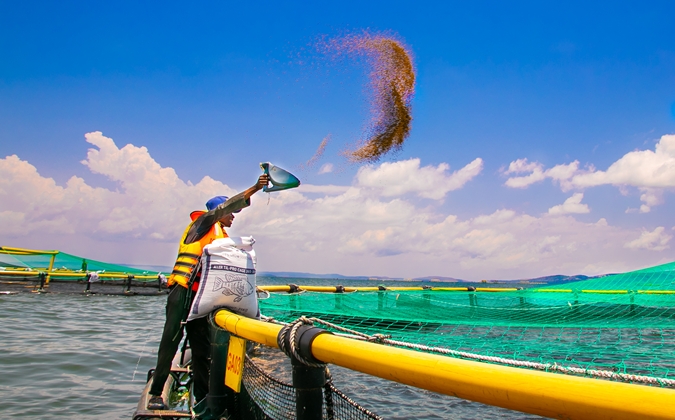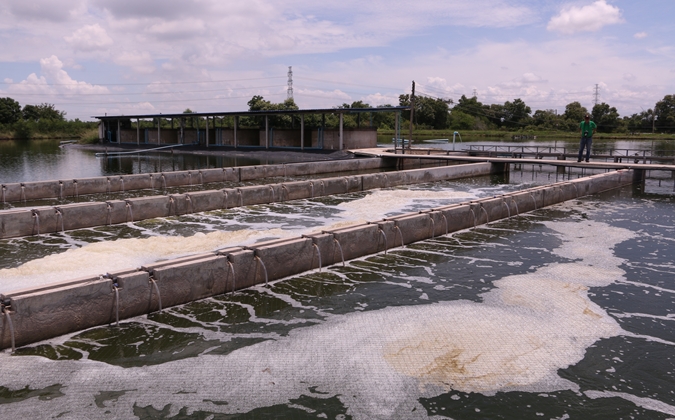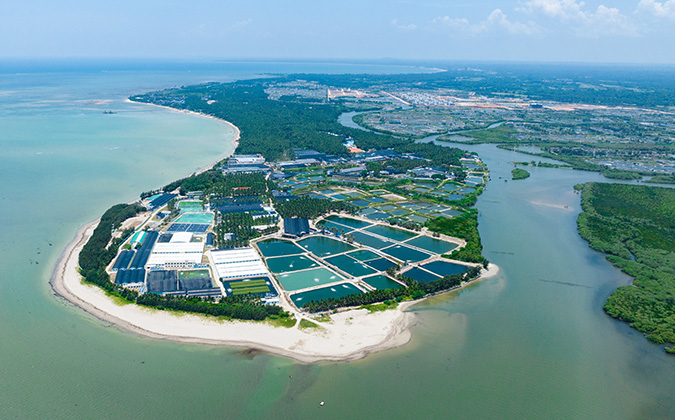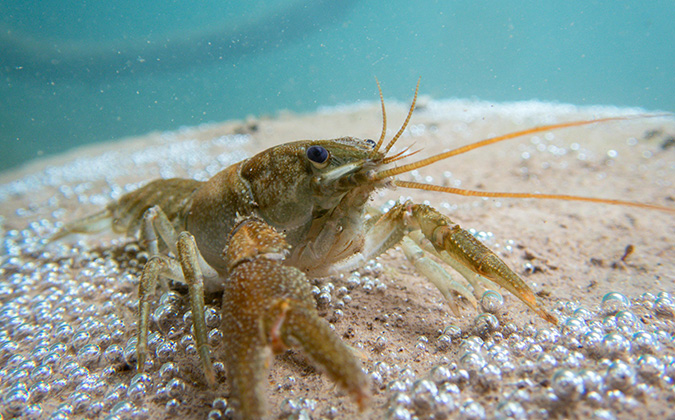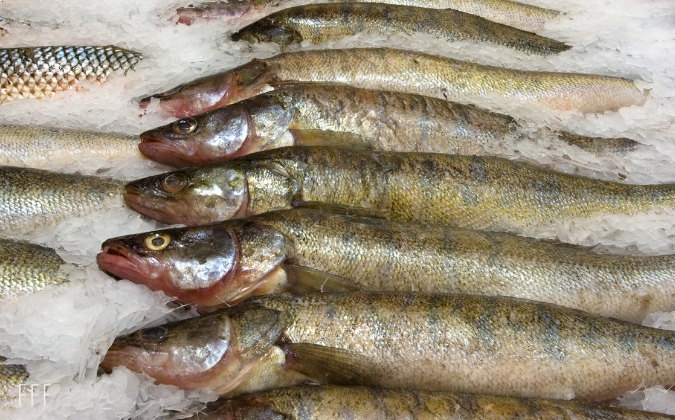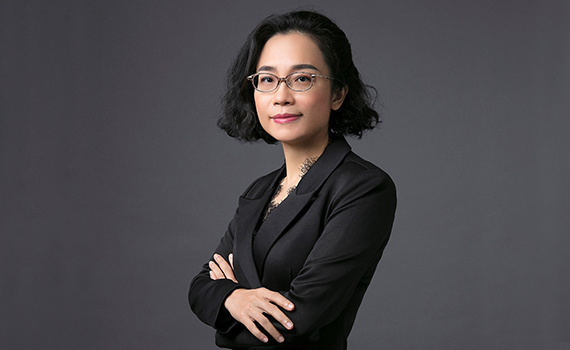
Fish Farm Forum is pleased to host this editorial page on behalf of Pharmaq.
Pharmaq
Fish vaccination a key part of future success for world’s largest pangasius producer
The key to the continued growth of the pangasius industry is being more innovative in solving its main fish health, quality and sustainability challenges, says Nguyen Ngo Vi Tam, CEO of Vinh Hoan, the world’s leading producer of the species.
The Vietnamese pangasius industry has seen significant improvements in both performance and cost efficiency over the past 40 years, with current exports totaling US $2 billion. But the next steps involve a heightened focus on sustainability, acknowledging wider aquaculture industry trends and changing demands in the market, Tam suggested.
The global fish farming industry has recently faced criticism over the use of therapeutics such as antibiotics, due to concerns about its impact on the development of antibiotic-resistant pathogens. This puts the issue at the center of her thinking, albeit with food safety issues also playing a defining role.
“One of the main challenges in our industry is not to have any harmful drug residues in fish products,” she explained.
Complicating antibiotic issues, large producers such as Vinh Hoan share the waters of the Mekong Delta with primitive smallholder fish farms, many of which have been found to use significant amounts of antibiotics with no susceptibility testing.1 Tam describes the situation as having a “complex geopolitical context,” due to the Mekong River running through five countries before Vietnam, potentially bringing health threats from elsewhere.
Vaccines part of push to cut antibiotics
According to Tam, increasing rates of vaccination is crucial to improving the sustainability, safety and marketability of pangasius, with the global salmon industry serving as a benchmark for a shift toward prophylactic approaches to fish health. Ultimately, she said, Vinh Hoan’s goal is therapeutics-free production.
Vaccination levels currently stand around 15% across the firm’s production facilities. Though they have already observed reduced need for antibiotic use, faster growth and higher survival rates in vaccinated fish, Tam acknowledged that it will take more work in both research and farming practice to reach the target.
To advance its vaccination goals, Vinh Hoan signed a strategic partnership with PHARMAQ in 2018. Under the partnership, the company has been increasing the rate of vaccination on its farms using ALPHA JECT® Panga 2, a new multivalent, inactivated vaccine against Edwardsiella ictaluri and Aeromonas hydrophila — the most significant pathogens in Vietnamese pangasius production — which cause the diseases enteric septicemia and motile aeromonad septicemia.
“PHARMAQ was the first company in Vietnam nearly 15 years ago that was researching and developing vaccines for pangasius. Obviously we were very much interested and supportive of such development. That’s why after a few years of trials, we entered the strategic partnership to widely apply vaccination to our fish farms as well as collaborate on other issues of fish health management.”
The move ties in with recent political developments affecting the sector. In March 2021, the prime minister of Vietnam approved the 2021-2030 National Plan on Prevention and Control of Economically Important Aquatic Diseases. The plan gives prominence to the importance of vaccines in controlling severe diseases in Vietnamese pangasius and reducing the development of antimicrobial resistance. It also paves the way for promoting the research and development of innovative vaccines and biologicals.
Striving for innovation
While vaccination plays an important role in this process, improvements in brood-stock quality and water management are also necessary, she added. During the first years of the partnership, PHARMAQ experts worked closely with counterparts at the company to observe disease management on sites, while investments in production technology are expected to make an impact over the long term.
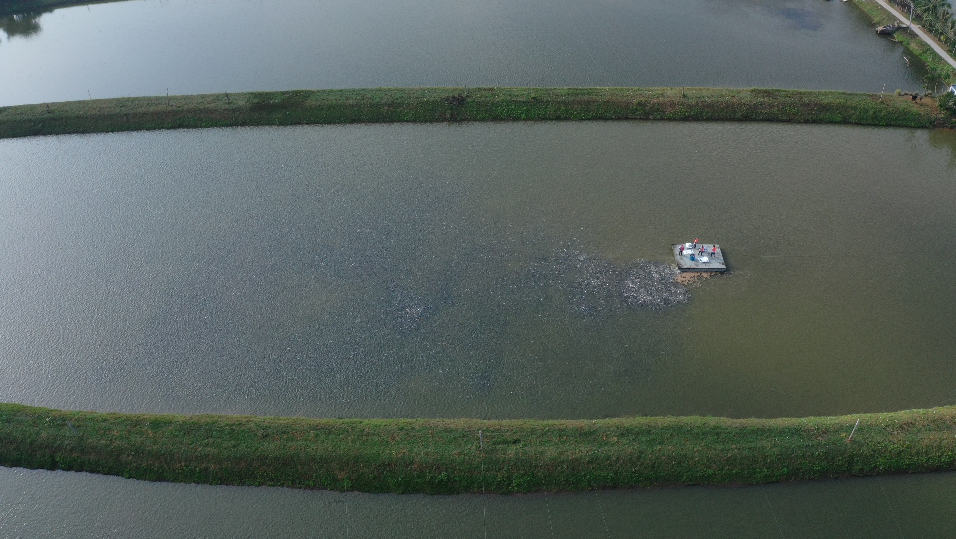
Vinh Hoan pangasius farm, Vietnam
The company is also building a new hatchery complex on a 100-hectare island, which will serve as a farming research and develpoment center. It will play host to a breeding program, nutritional research and a recirculating aquaculture system (RAS), as well as providing a base for fish vaccination.
Using RAS provides a solution to the problems associated with sharing the Mekong Delta’s waters with other producers, as well as facing discharges from cities, industry and agriculture, Tam noted, as such systems allow farmers to grow fish outside of this environment.
“We strive for innovation which could help us be less dependent on and vulnerable to a very open-water system. We believe that aquaculture will be based more on closed systems in the future, of which RAS is an example,” she said.
Customer interest, but some farmer resistance
Increased rates of vaccination make for a sensible strategic move, Tam said.
“Most of our customers are interested in our vaccination program. It helps in strengthening our position and differentiation in terms of animal welfare and sustainability in the markets. And, of course, it helps with higher fish performance, so we can compete better in raw material quality for processing,” she added.
Despite the advantages they offer, the roll-out of vaccine technologies has not proved a completely smooth one.
“At first, our people had some resistance due to the potential cost increase and also because we have to vaccinate the fish manually. In the early days, we faced fish mortality due to disease outbreaks triggered by the stress of handling,” she explained.
Since then, collaboration with PHARMAQ has resulted in improved routines for health checks and monitoring, as well as vaccination of fish earlier in the production cycle, reducing the risk of disease outbreaks following vaccination.
There have been other practical issues reported including the delay of vaccination of fish due to disease outbreaks and the challenge of vaccinating a whole farm or area to achieve optimal vaccine efficacy through population immunity.
Importance of leadership
Tam believes that companies such as Vinh Hoan should lead the move toward vaccination and a broader “cultural shift” in the sector, with independent farmers tending to follow what has proved successful at larger scale. Collaboration will also play a role in achieving sustainability goals, she emphasized. Vinh Hoan has a prominent role at the Vietnam Seafood Processors and Exporters Association, where they participate in discussions with other companies and quality-control authorities around shared challenges.
There is clearly still some way to go in accelerating adoption of vaccination in Vietnam, as well as integrating other best practice approaches around disease management and environmental quality. Tam stressed the need for both science and industry to be working toward the same goals.
“We are hoping that PHARMAQ will continue to develop new vaccines for emerging pangasius pathogens as well as vaccines for earlier stages of growth, such as fry. In turn, we will continue to prove their performance for other stakeholders in the industry so vaccines can be widely used,” she added.
“Ultimately, we think that a shift toward preventative approaches in pangasius production will help the industry play a more important role in sustainable global aquaculture, bringing improved awareness of what’s changed and how it contributes to healthier production, as well as acceptance of Vietnamese pangasius products from consumers.”
1 Dang LT, Nguyen LT, Pham VT, Bui HT. Usage and knowledge of antibiotics of fish farmers in small‐scale freshwater aquaculture in the red river delta, Vietnam. Aquacult Res. 2021.
Posted on: November 05, 2021


